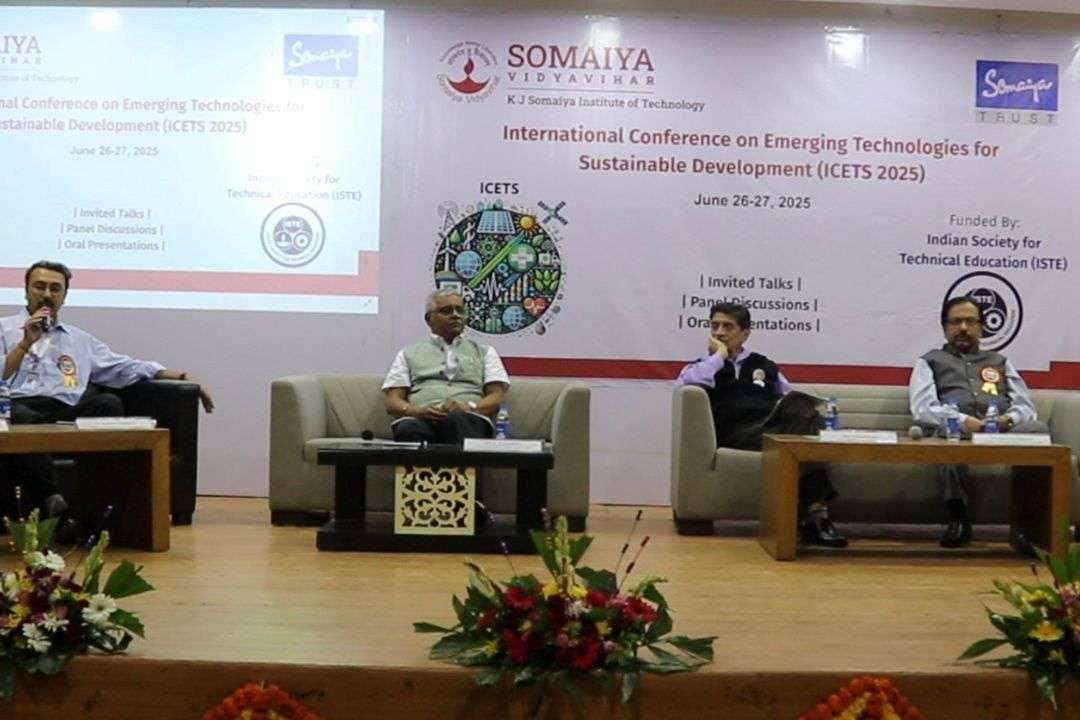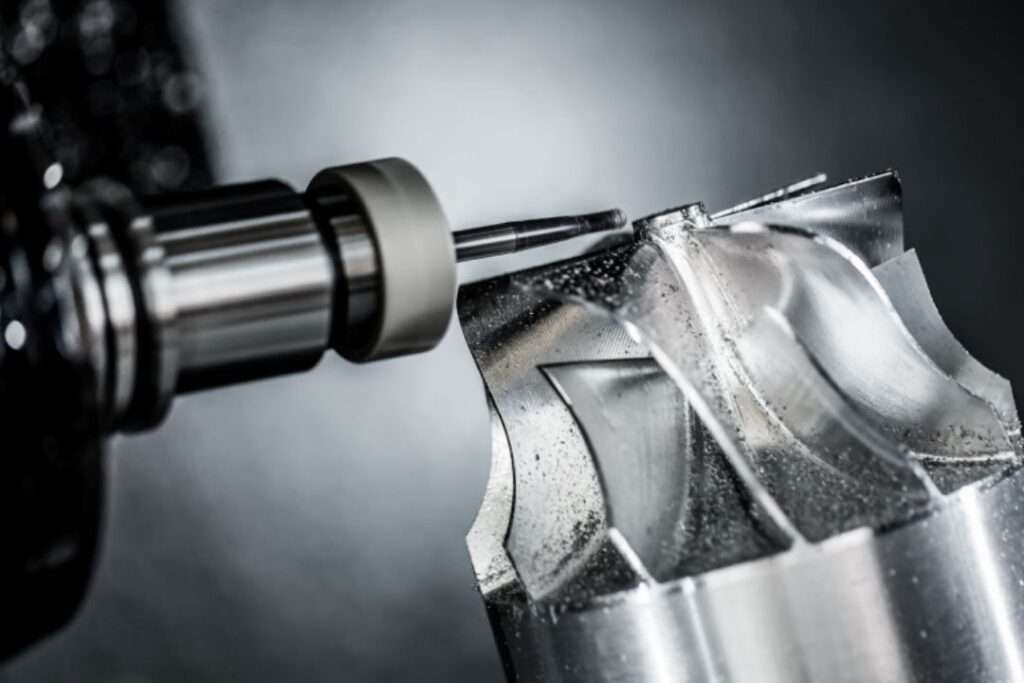K J Somaiya Institute of Technology, Mumbai, recently hosted the International Conference on Emerging Technologies for Sustainable Development (ICETS 2025), supported by the Indian Society for Technical Education (ISTE). The two-day event began with an inauguration ceremony led by Chief Guest Dr Dilip Shivagan, Senior Principal Scientist and Head of Temperature & Humidity Metrology at CSIR – National Physical Laboratory, New Delhi.
Other dignitaries included Prof VN Rajasekharan Pillai, Vice Chancellor of Somaiya Vidyavihar University, Dr Suresh Ukarande, Director of K J Somaiya School of Engineering, and Dr Vivek Sunnapwar, Principal of K J Somaiya Institute of Technology and Conference Chairperson. The conference brought together leading experts who delivered keynote addresses and participated in panel discussions that offered fresh insights and future research directions for scholars and practitioners.
In his plenary speech, Dr Shivagan highlighted advances in Quantum Metrology and its role in sustainable development, encouraging attendees to explore innovative measurement techniques for environmental monitoring and clean technologies.
Two major panel discussions were held during the event. The first, titled “Technology, Research, and Policy as Catalysts for India’s Climate Action,” featured experts including KS Hosalikar (former India Meteorological Department scientist), Sambhaji Kadupatil (former IAS officer and Director General of Vasantdada Sugar Institute), Kaustav Chakravarty (Indian Institute of Tropical Meteorology), Nidhi Jamwal (environment journalist), and Vishram Bapat (Databyte Services). The panel underscored the need for strong policies, technology adoption, research efforts, and community involvement to drive India’s climate resilience agenda.
The second panel, “India in Orbit: Research, Innovation, and Global Leadership in Space by 2040,” brought together space experts such as Dr Deepak Mishra (Indian Institute of Space Science and Technology), Ronak Kumar Samantray (founder of TakeMe2Space), Prof CS Kulkarni (University of Mumbai), Sajo George (Manastu Space Technologies), Srinivas Laxman (space journalist), and Ruchira Sawant (science journalist). They discussed future priorities in satellite development, indigenous space innovation, entrepreneurship, and international cooperation aimed at enhancing India’s space sector leadership.
Participants from across India and abroad presented research papers in four thematic areas: Environmental Sustainability and Climate Action, Sustainable Healthcare and Equality, Sustainable Agriculture and Food Security, and Space Innovations for Industry Transformation. Sessions were chaired by Dr Rajib Chattopadhyay (India Meteorological Department), Nitin Kamble (Tata Technologies), and Mahesh Rajmane (NETSCOUT), who also delivered keynote addresses on topics ranging from AI and climate services to sustainable industrial frameworks.
The conference provided a lively forum for sharing ideas, building partnerships, and exploring new research aligned with both national and global sustainable development priorities. The event was organized by Dr Radhika Kotecha, Professor and Head of the Department of Information Technology, along with Dr Umesh Shinde, Associate Professor and Dean of Research, Development and Consultancy, supported by a dedicated team.
A highlight of ICETS 2025 was the inauguration of a state-of-the-art meteorological instrument called a “disdrometer” at K J Somaiya Institute of Technology, installed by the Indian Institute of Tropical Meteorology, Pune, thanks to the efforts of Dr Kaustav Chakravarty. This instrument will enhance regional climate monitoring capabilities and support ongoing research in weather and environmental sciences.








